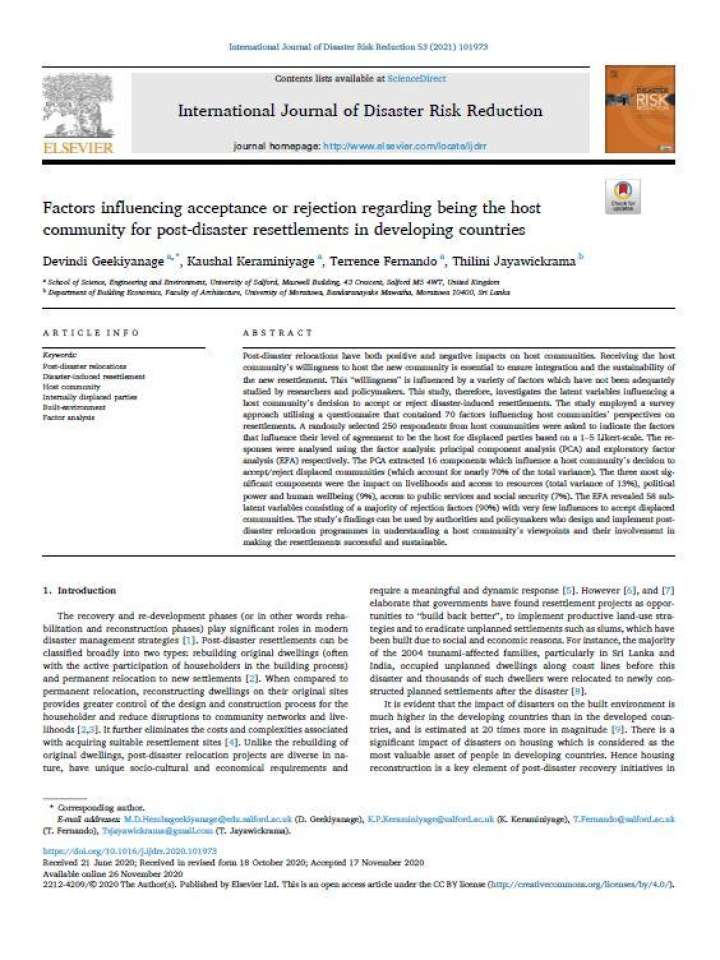Factors influencing acceptance or rejection regarding being the host community for post-disaster resettlements in developing countries
This study investigates the latent variables influencing a host community's decision to accept or reject disaster-induced resettlements. The study employed a survey approach utilising a questionnaire that contained 70 factors influencing host communities' perspectives on resettlements. The responses were analysed using the factor analysis: principal component analysis (PCA) and exploratory factor analysis (EFA) respectively.
The PCA extracted 16 components which influence a host community's decision to accept/reject displaced communities (which account for nearly 70% of the total variance). The three most significant components were the impact on livelihoods and access to resources (total variance of 13%), political power and human wellbeing (9%), access to public services and social security (7%).
The study's findings can be used by authorities and policymakers who design and implement post-disaster relocation programmes in understanding a host community's viewpoints and their involvement in making the resettlements successful and sustainable.
Explore further
